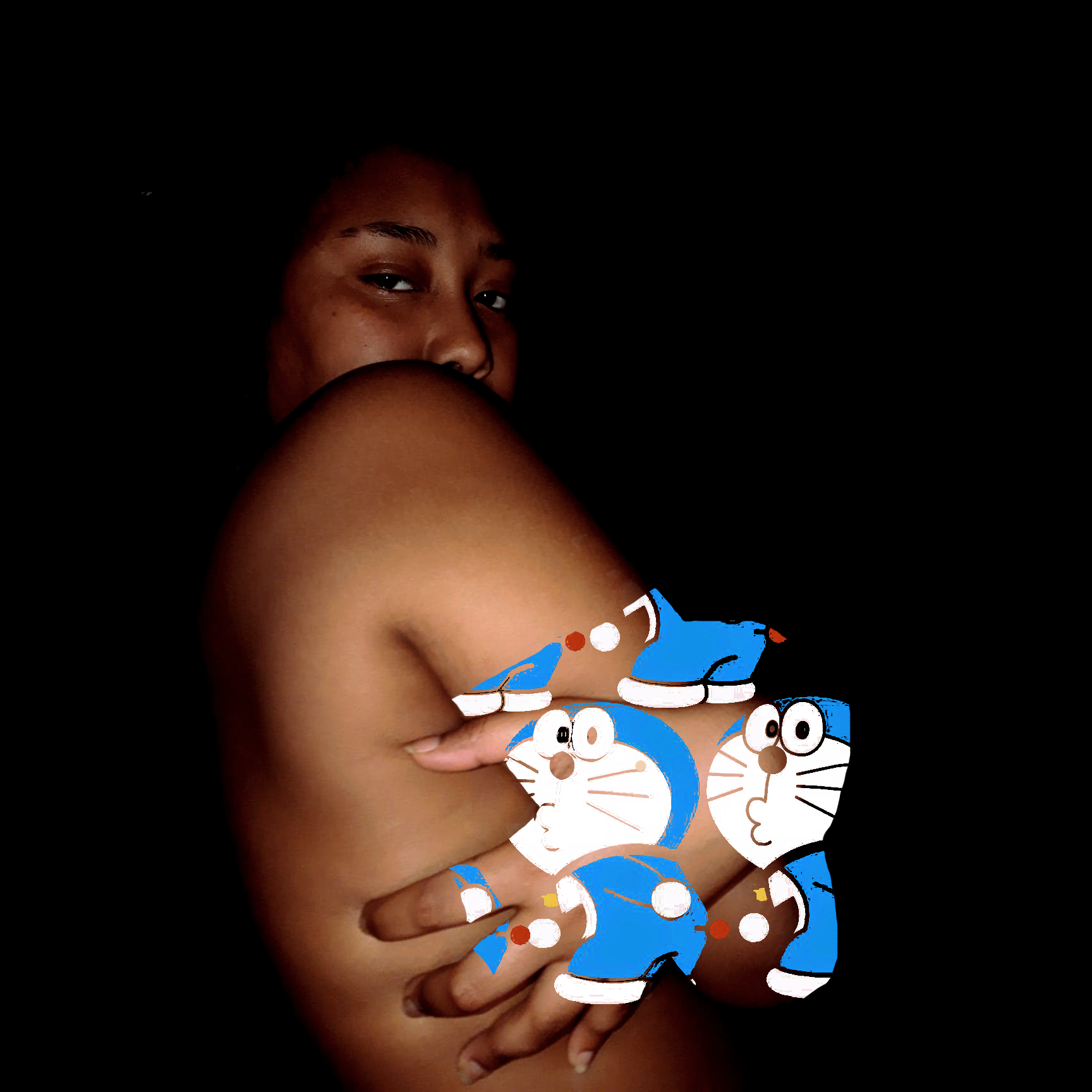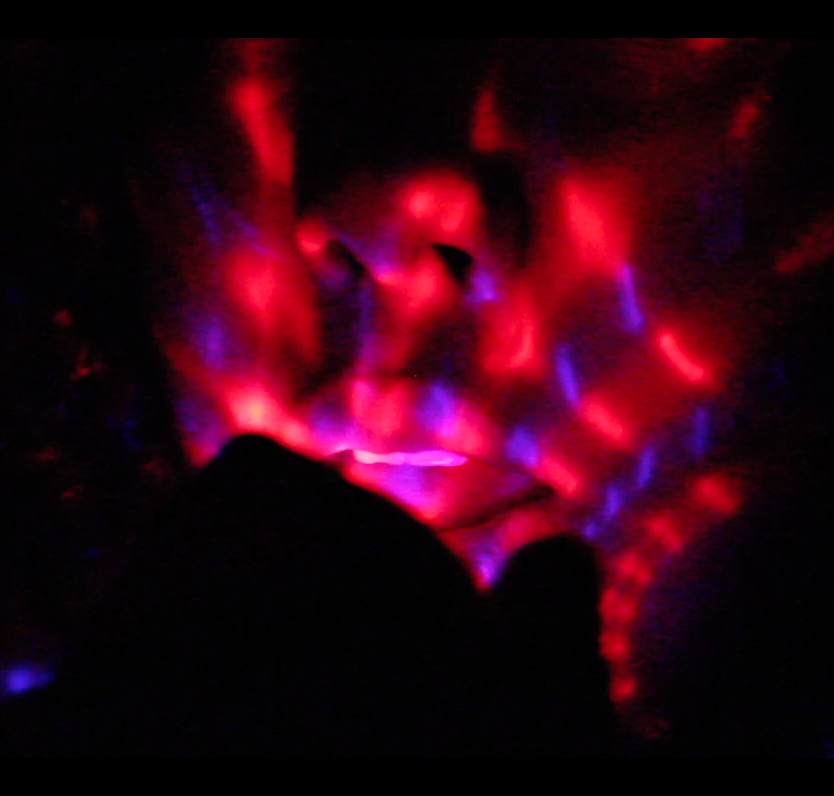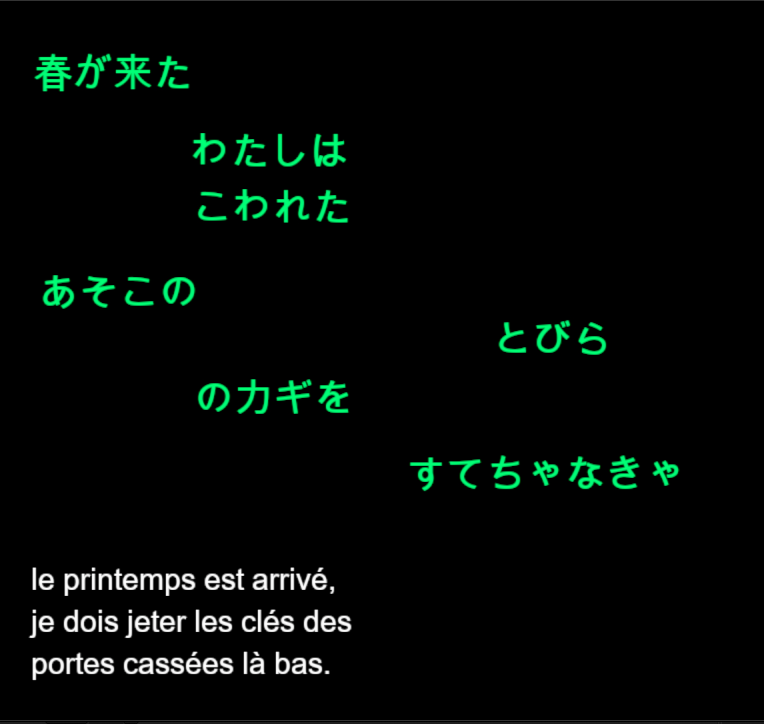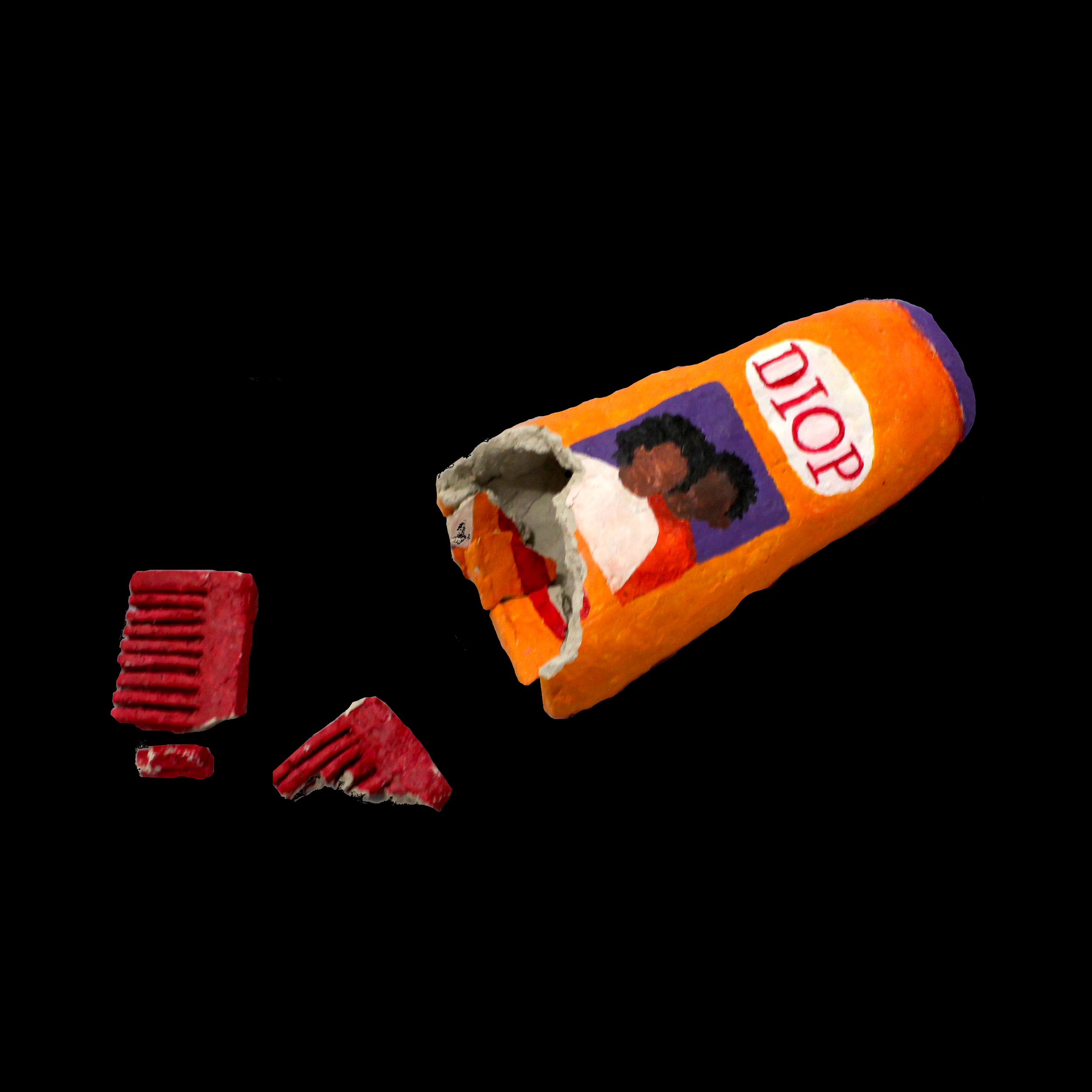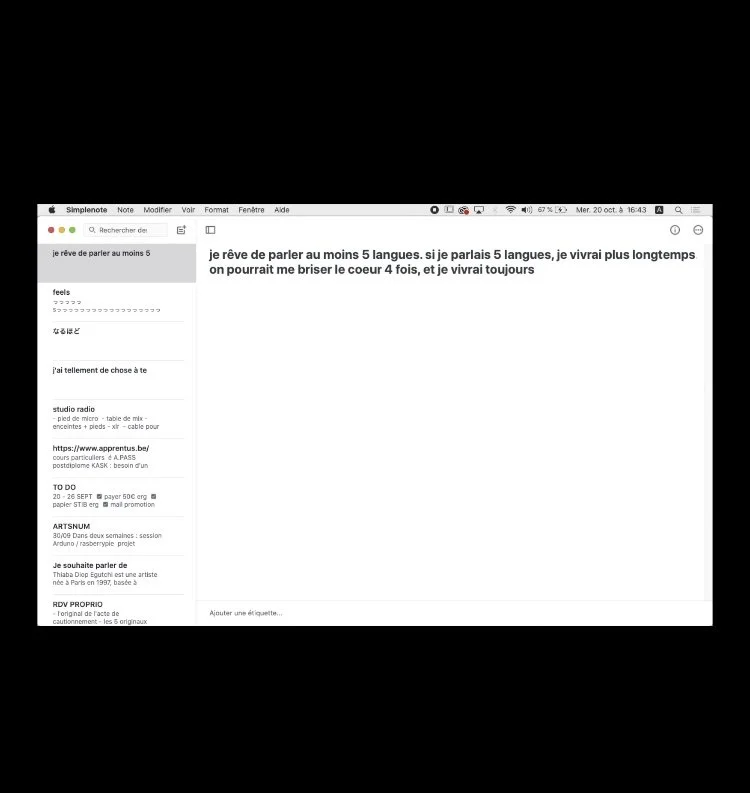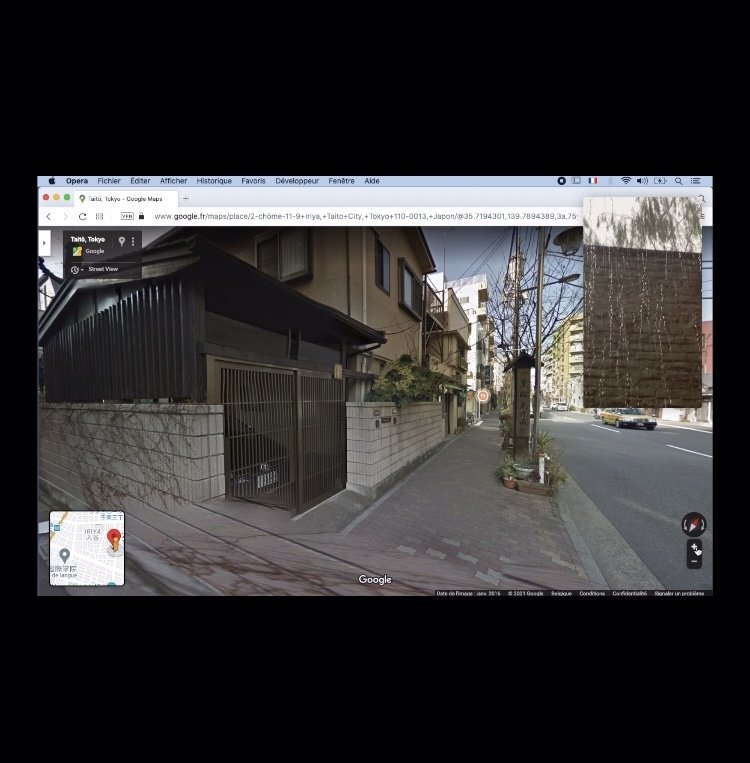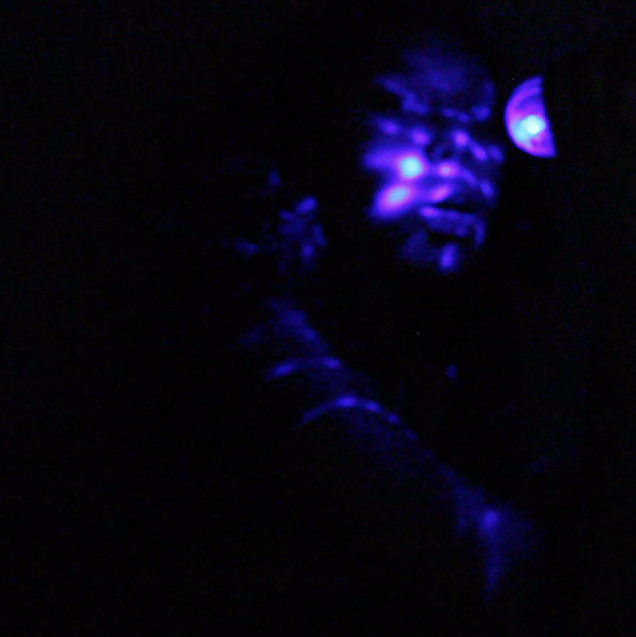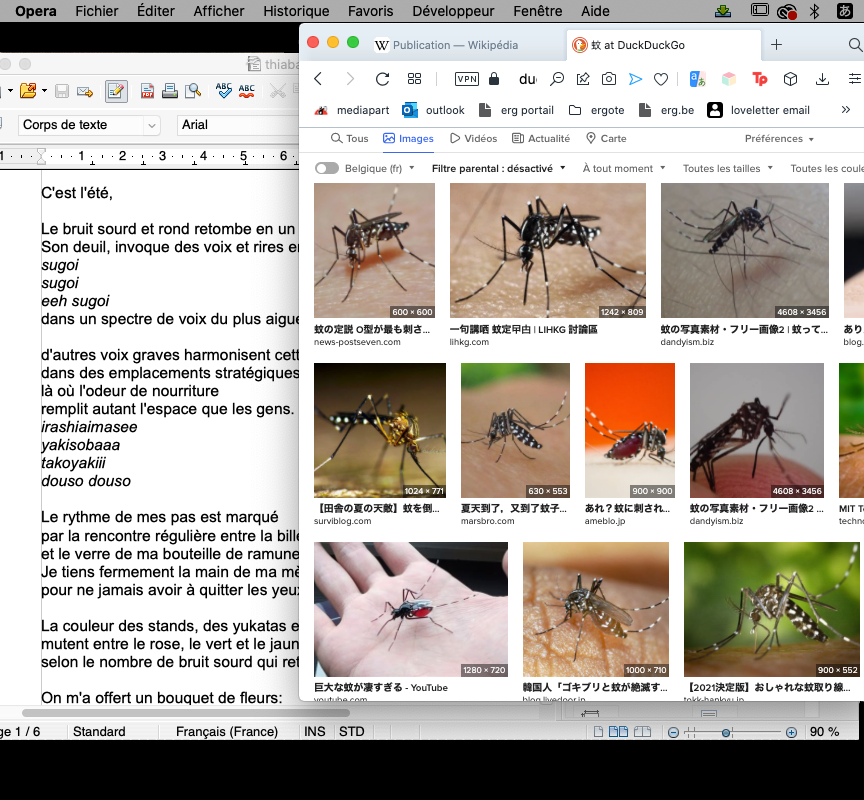Thia(ba) Diop Egutchi
Thia(ba) Diop Egutchi (they/them) explores the area of the between through textual and musical poetry. With their music and writing, they navigate between their race and their cultural environments, between French and Japanese, between the speakable and unspeakable, translatable and untranslatable.
Their Japanese and Senegalese origins highlight the power dynamics that exist in the between things - as in their cultures or their love stories.
Through sounds and poetry Thia(ba) shares an ode to cultural and identity hybridization.
What inspired you to get into the arts, poetry, music? Did you have any influential role models? (if so, who?).
“I always saw people expressing themselves through music, drawings and creativity in general since my childhood. My own parents, brother and sister are artists in their own medium. I consider my interest for the arts as a part of my family and cultural heritage. My parents didn't teach me music technically, but gave me an environment that invited me to explore it by myself.”
“As a teen, I was already exploring music (singing, playing instruments) but my main medium was still drawing since my childhood (which has something to do with my Japanese education) to my Bachelor graduation in illustration. But since I entered ERG (École de Recherche Graphique of Brussels) which encourages experimentation with several mediums and re-invent them, I started to re-explore more and more music and then poetry and sound installations. From there, I did a Master's degree in ERG of installation and performance and continued this path into poetry and music under different forms.”
What is your creative process and what are the most important things you keep in mind when beginning a new project? Are there any recurring themes/issues you like to address within your work?
“Whatever its form, I consider my art work as a story. A story which comes from my own intimacy, but which lives and tells beyond only myself. I like to think about my work according to the environment in which it will be broadcast or exposed, because the question of "who am I addressing?" is essential to know what story I want to tell. It can be a sound installation with audio poems about my relationship to the sea or internet, melting into each other, a pop love song with French and Japanese lyrics co-existing and expressing things that are untranslatable for me between them, or broken Japanese combs that I made of clay laying on the floor.”
“I always keep in my mind that intimacy is political. My work mainly speaks about the challenge of identity in the current political environment, and the forms that cultural hybridization can take. Through an entry into the sensitive, the intimate, the anecdotal, the details, the common, I invite into my own perspective, with all the material and therefore political realities that it carries.”
“As a queer afro-descendant brown Japanese person, to be heard, to take some space and exist through my poetry, is as much a political process as it is a healing process.”
“Audre Lorde's speech and her literary works greatly influenced my relationships to these questions. I also really like to work in collaboration, especially with my music. I love to create soundtracks for spaces, performances, images, and push the hybridization of all the identities involved in the project or the space, even further – especially if I get the chance to discover people apart from a very standardized identity.”
What advice would you give to artists starting out or to those artists who are struggling with creative blocks?
“My advice to artists starting out or to those artists who are struggling with creative blocks, would be to explore different mediums, since I believe that everything that you will practise, even just a little, will be beneficial for your creativity and your approach to your main medium (which can change of course) in all cases. Drawing helped me understand why I was writing and why I should continue to write.”
Are there upcoming events/appearances that you would like to bring attention to?
“What I am very excited for is Acqua Salata 2. It's the second edition of a performative and musical event in collaboration, leaded by Lazza Gio. I'll perform there as a musician, but I am also a part of the organising team. I think there is nothing more rewarding than to participate in an event that you help build in the first place, and discover all of the other artists.”
“It's going to take place on the 10th September, save the date!”
“I will also participate in an artistic residence of Plan B in September/October. I can't wait to work with other artists that I will discover there in a completely new environment – which I'm sure will reveal something about my own practise.”
“Finally, I'm planning to upload my Mémoire « about language translation, rightness fairness, loss and love » at the end of the summer, which is a mythobiographical poetic narrative about the construction of my identity and my relationship to my surrounding, between Japanese and French – and the challenging notion of translation.”
